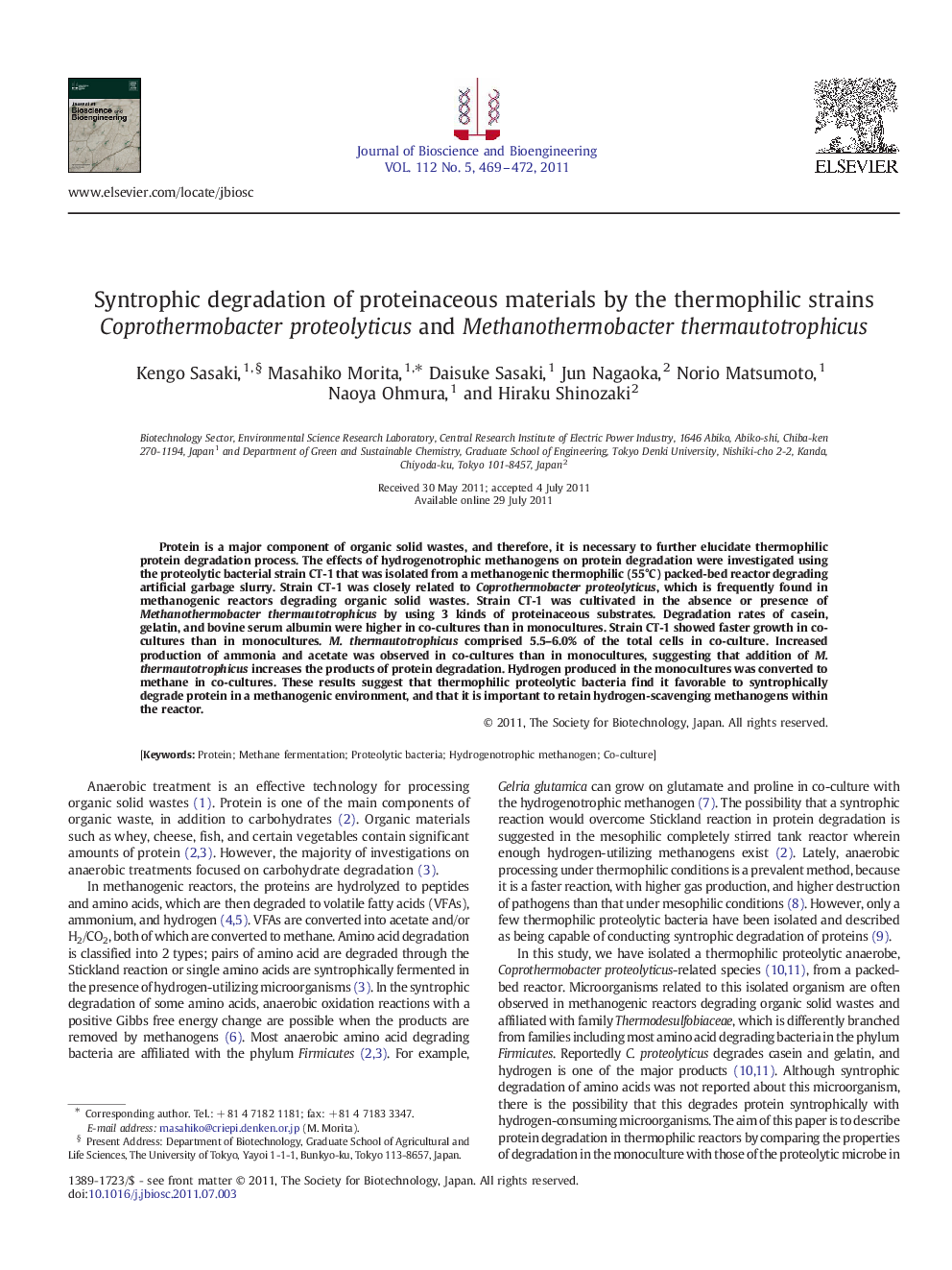| Article ID | Journal | Published Year | Pages | File Type |
|---|---|---|---|---|
| 21442 | Journal of Bioscience and Bioengineering | 2011 | 4 Pages |
Protein is a major component of organic solid wastes, and therefore, it is necessary to further elucidate thermophilic protein degradation process. The effects of hydrogenotrophic methanogens on protein degradation were investigated using the proteolytic bacterial strain CT-1 that was isolated from a methanogenic thermophilic (55°C) packed-bed reactor degrading artificial garbage slurry. Strain CT-1 was closely related to Coprothermobacter proteolyticus, which is frequently found in methanogenic reactors degrading organic solid wastes. Strain CT-1 was cultivated in the absence or presence of Methanothermobacter thermautotrophicus by using 3 kinds of proteinaceous substrates. Degradation rates of casein, gelatin, and bovine serum albumin were higher in co-cultures than in monocultures. Strain CT-1 showed faster growth in co-cultures than in monocultures. M. thermautotrophicus comprised 5.5–6.0% of the total cells in co-culture. Increased production of ammonia and acetate was observed in co-cultures than in monocultures, suggesting that addition of M. thermautotrophicus increases the products of protein degradation. Hydrogen produced in the monocultures was converted to methane in co-cultures. These results suggest that thermophilic proteolytic bacteria find it favorable to syntrophically degrade protein in a methanogenic environment, and that it is important to retain hydrogen-scavenging methanogens within the reactor.
